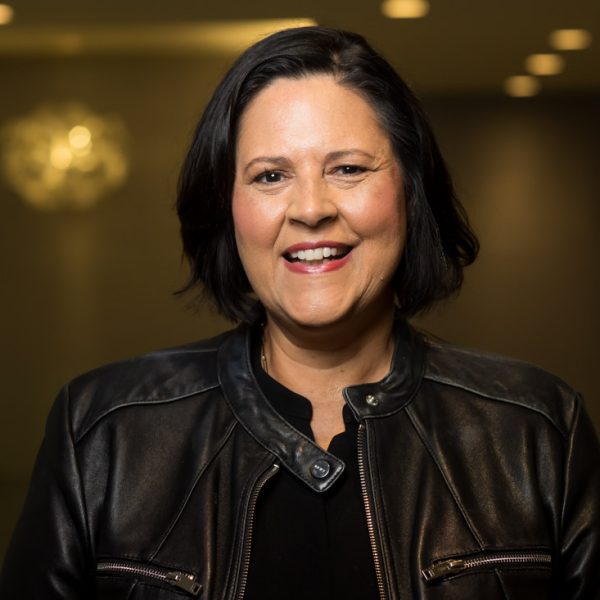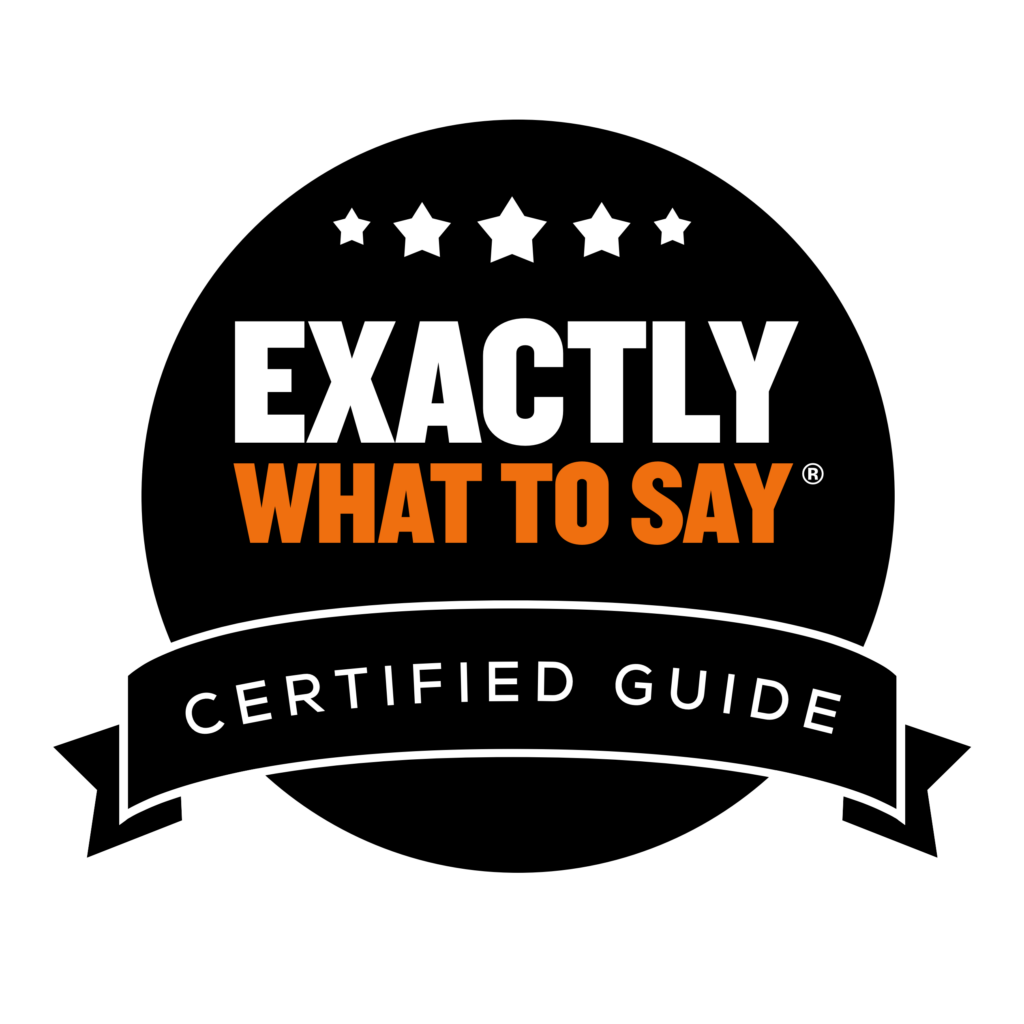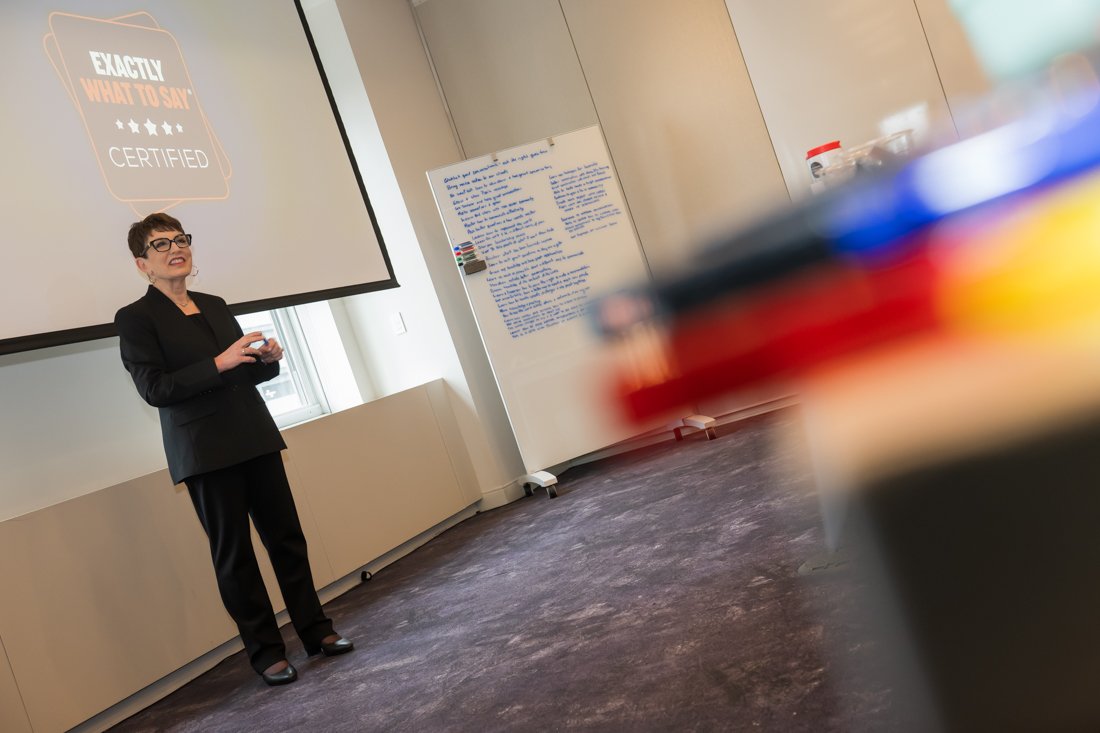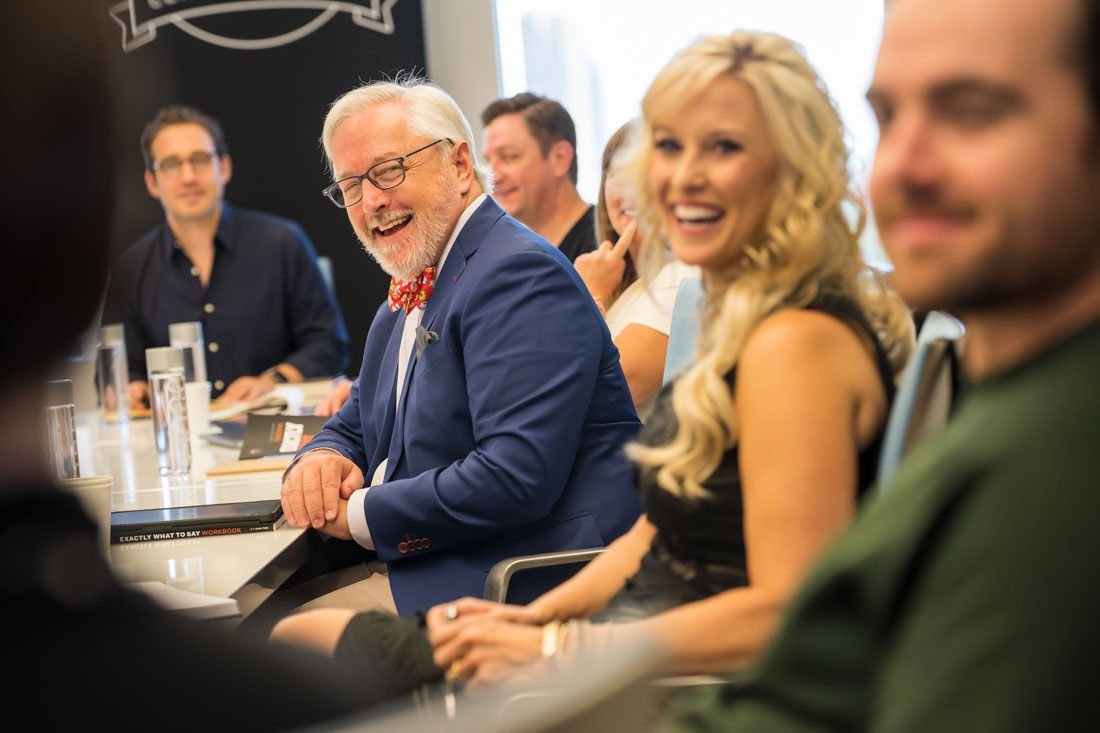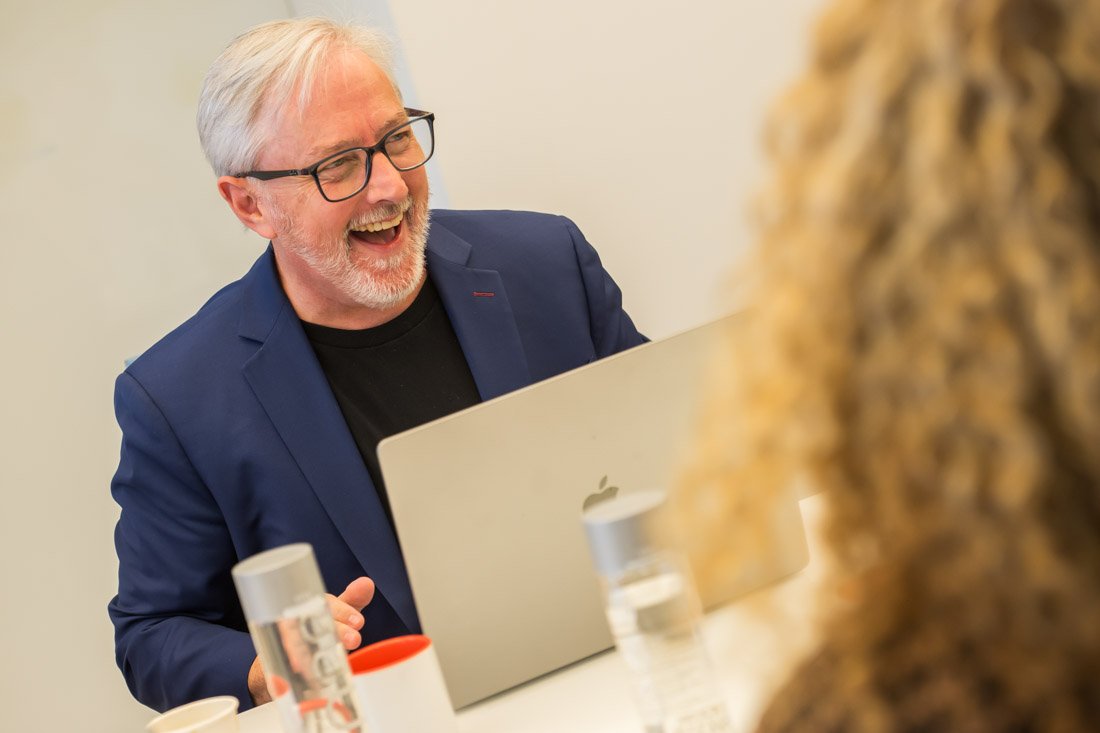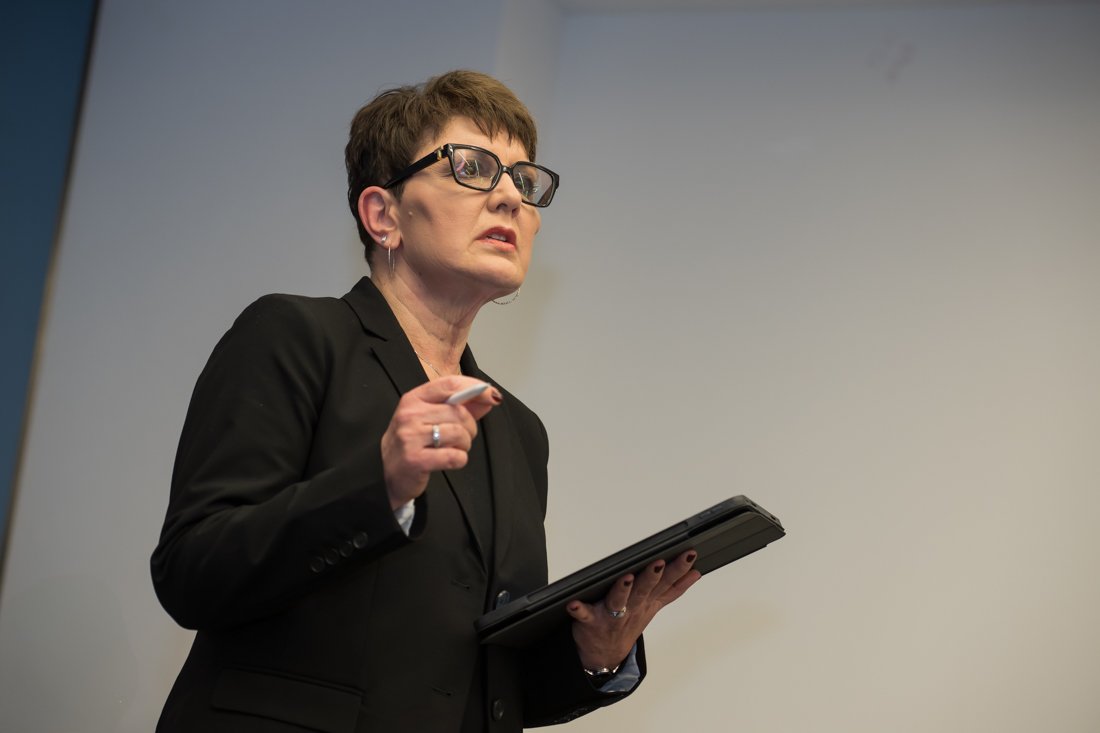Conversations are often the bridges that connect, drive decisions, and shape futures. But how do you recognize pivotal dialogues that could transform your careers and relationships?
EWTS Certified Guide, Laurie Savino, hosted one of the EWTS Critical Conversations webinars focusing on the powerful conversations that happen in your life and how you can identify them.
Laurie is an associate broker who sells in both New York and New Jersey. She has sold over $40 million in real estate. Her family started in commercial real estate, so retailing has always been in her blood.
Over the years, she has come to realize how much words matter. How you speak to people and the conversations you engage in are vital, and if you desire to move the needle forward, then it’s vital you choose your words wisely.
Laurie is also an EWTS Certified Guide and was drawn to Exactly What to Say because of the focus on good communication.
Can Communications Challenges Help Drive You Forward?
How many times have you been faced with an adversary during your Critical Communications?
In August of 2021, Laurie was diagnosed with Meniere’s disease, which caused her to suffer from severe vertigo that left her unable to leave the house for weeks. She couldn’t drive and effectively had to learn how to walk all over again. She also lost 35 % of her hearing right away, and then, within a year, she became completely deaf.
After having a cochlear implant, she has regained her hearing, but the whole experience has served to demonstrate how, with the right attitude and fight, you can achieve absolutely anything.
This pivotal moment in her life has also reinforced just how powerful communication is, and she understands now more than ever that the way you converse could seriously affect the potential outcomes.
What Is A Critical Conversation?
What exactly is a Critical Conversation?
It is usually a process of communication, such as the sharing of information that has the potential to get you to your desired outcome. They tend to be high-stakes situations that are very important to you.
Have you ever engaged in this type of conversation and thought afterward that you wished it had gone better?
This blog will guide you to get to the next level.
It’s important to identify what your Critical Conversations are because to make them successful, you need to make sure that you are in control of the direction they go.
Take the time to stop and think about what you’re going to say and how important it is. The absolute worst time to think about what you are going to say is in the moment that you are saying it.
Being unprepared can lead to objections and this is a difficult conversation to navigate through. The trick is to respond without sounding rude – everyone is entitled to object, and it is your job to show them how you can overcome their objection.
Identifying Your VIPs
Critical Conversations can happen in your personal life and your professional life. Talking to your family is most likely one of the most important conversations that you can have, and most people desire them to be meaningful and impactful.
Professionally, your clients are no doubt incredibly important to you, so it’s vital that you treat each other well. And what better way to demonstrate this than in the way that you talk to each other?
What are the conversations that you have regularly with your VIPs? And what are the types of conversations that you have regularly?
Once you have identified your high-stakes conversations and people, you can start to prepare properly.
Relationship Map
Once you know what a critical conversation is, what your critical conversations are, and who you are having them with, you can start building relationships.
Dale Carnegie believes that there are 30 principles to win friends and influence people, and Laurie drew on some of his theories in her webinar.
Firstly, you should think about all the people who are important to you and create a relationship map.
In the center of your map, you should write your name and then list all of the important relationships that you have all around you. They might be your buyers and sellers, your family, or your coworkers.
Now you have identified the people, you can start to build relationships.
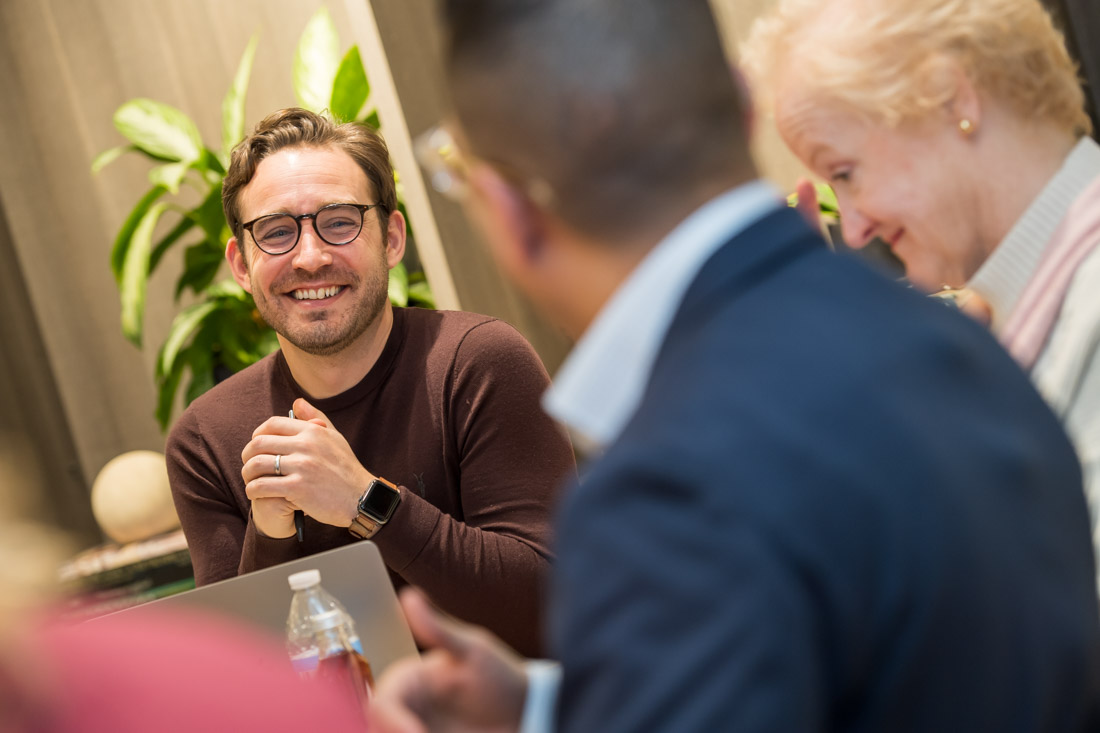
How To Build Relationships
One of the fastest ways to build a relationship is to pay attention and listen to the other person. Understanding their needs is imperative to giving them what they want and allowing them to feel seen.
Other things that you should do are:
- Smile
- Remember client names
- Be a good listener
- Encourage others to talk about themselves
- Ask questions
- Stop and listen
- Be sincere
How often have you presumed what another person might want? Often, the only way you are going to understand your VIP’s needs is if you truly listen and take the time to connect with them on a deeper level.
How Should People Perceive You?
How people perceive you will impact your ability to build a relationship and maximize the impact of your Critical Conversation. For Laurie, she wants to make sure that people see her as an expert.
How you look, what you say, and how you say it are crucial components to creating a good perception of you.
There are four things that you can do to help you be seen as an expert. It’s called Lion.
L
Language
– is your language easily understood? Explaining things in language that’s easy to understand is going to help you demonstrably with your Critical Conversations.
I
Illustrate
– clarify your words with illustrations to ensure that you are fully understood.
O
Organize
– your thoughts and be prepared.
N
Narrow
– your subject key points.
Following these simple 4 steps will help you make your conversations super clear and concise.
Putting It Into Practice
How can you put all of this into practice with your daily Critical Conversations?
The single easiest way to maximize your conversational skills is to stay curious. If you think you’ve asked enough questions, ask another one. This approach will get you all the information needed to have a more meaningful Critical Conversation and build solid relationships.
Curiosity allows you to help your clients because your exploration will help you understand their needs and their journey.
Curiosity leads to certainty, which then leads to empathy, trust, and relatability, and it is only at this point that another person feels confident to take decisive action with you.
So be curious, ask those questions, get the relatability, and build trust. If you aspire to be a good conversationalist, then you first need to be an attentive listener.
Next Steps
- Identify where your Critical Conversations happen
- Identify who they happen with
- Create and draw on your relationship map
Make these encounters as positive as possible because being a more friendly person often enhances your performance.
It’s important to identify what your Critical Conversations are because to make them successful, you need to make sure that you are in control of the direction they go.

